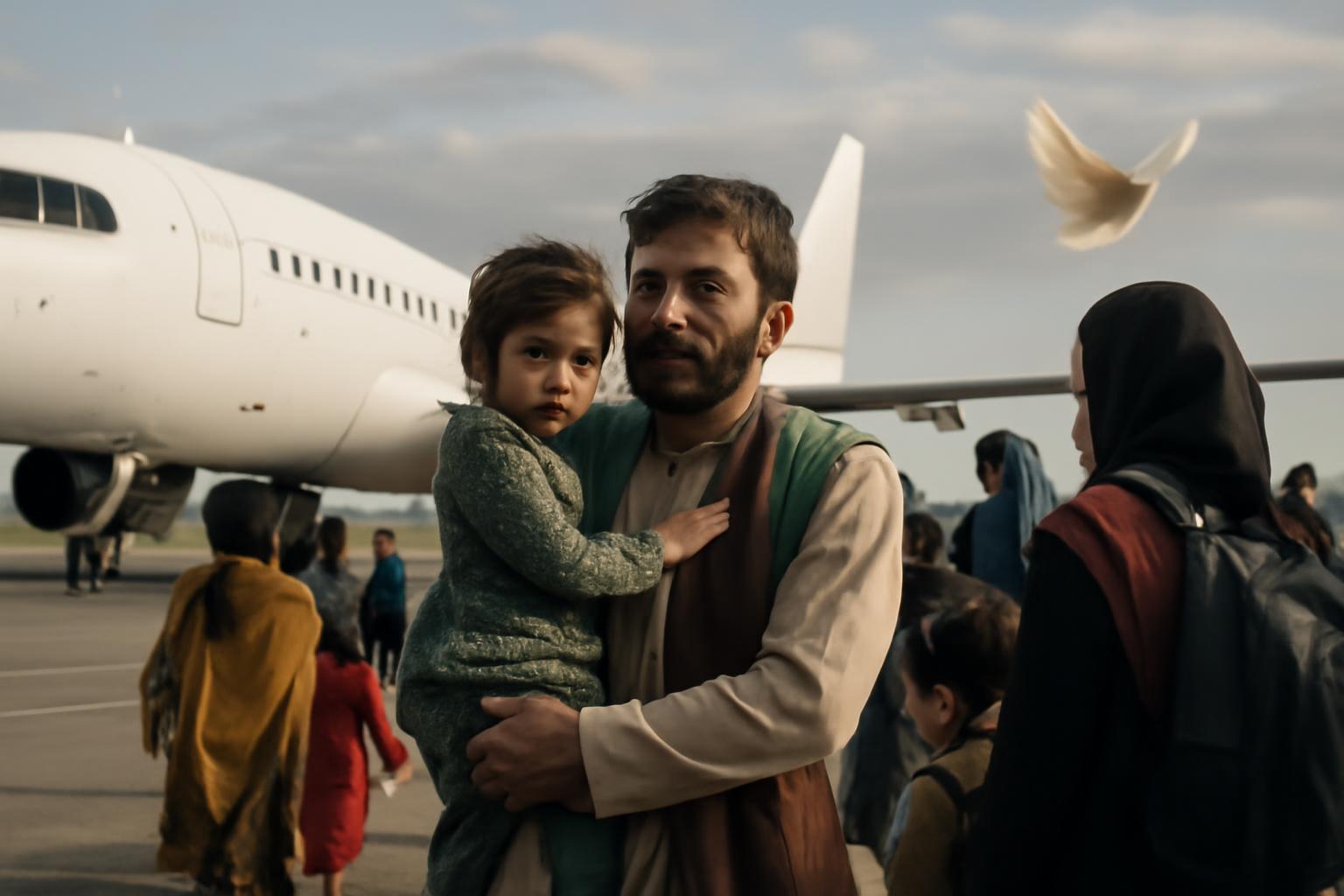Ten Afghan families, 47 people in all, most of them former local staff who assisted German forces in Afghanistan and one human rights activist, have finally left Pakistan for Germany after months of waiting. They flew from Islamabad, with a Turkish Airlines connection via Istanbul to Hannover, and will move on to the Friedland reception center in Lower Saxony. Their departure came after delays in obtaining visas and amid Pakistan’s tightened stance toward Afghan transit migrants, including police actions at hotels that sent people back toward Afghanistan. For months they sheltered in a GIZ guesthouse as the situation worsened, as authorities began returning Afghans who were only in transit. As of mid-August 2025, about 2,300 Afghans remained in Pakistan awaiting visas despite commitments to resettle them, with visa issuance described as very difficult. Among the travelers is a mother of two who spoke of the Taliban’s repression of women, noting the deprivation of education, health, and basic rights and the travel restrictions imposed without a male guardian; she uttered relief at the chance to leave. Her daughter, who spent the waiting period learning German, spoke of wanting to become someone who can help others in the future. Their story sits within a broader, troubling context of political promises that outpace administrative reality.
What is happening here is not merely a humanitarian episode but a revealing test of how liberal societies organize themselves under pressure. The impulse to aid those who flee oppression and danger is a test of the moral core of a free order. Yet the visible frictions—the months-long delays, the tightening of transit rules, the reliance on ad hoc hotel stops and guesthouses, the improvised warmth of temporary shelters—expose a deeper problem: the knowledge problem that haunts centralized policy. No planner, however well intentioned, can possess the dispersed, local information necessary to move tens of thousands of individuals through the labyrinth of visas, safety checks, and reception arrangements without friction. The more policy attempts to micromanage who may move and when, the more it distorts incentives, delays outcomes, and corrodes trust in commitments that rest on the rule of law.
There is a fundamental tension between the humane aim to protect life and liberty and the bureaucratic reflex to tighten borders at the first sign of risk. Yet to respond to risk by constraining the freedom of movement is to mistake a symptom for a cause. The Taliban’s repression inside Afghanistan is precisely the kind of reality that makes the asylum system indispensable. But the answer cannot be to retreat into closed circuits of permission where decisions become a lottery of delays and discretionary omissions. A liberal order must ground its policies in predictable, principled rules that respect the rights of individuals while acknowledging legitimate concerns about security and integration. The virtue of a free society is not found in the absence of borders but in the commitment to a lawful, transparent process that treats people as ends in themselves, not as impediments to agenda.
These families carry more than stories of fear and peril; they carry human capital, talent, and the longing to build a life and to contribute to those around them. The mother’s plea points to the moral gravity at stake: denying or indefinitely delaying asylum is not just a temporary administrative burden; it is a subtle, systemic retraction of liberty that diminishes the very potential of human cooperation. The daughter’s resolve to learn German and to help others encapsulates the hoped-for dividend of a humane policy—the enrichment of society through the talents and solidarities of newcomers.
If there is a path forward, it rests on legal frameworks that fuse compassion with clarity. Streamlined, predictable visa and resettlement procedures, anchored in the rule of law, would reduce the ambiguity that unsettles families and host communities alike. Shared international responsibility—transparently agreed-upon quotas, fair processing standards, and timely decision-making—would lessen the temptation to shift the burden to transit states or to retreat behind closed doors. And alongside these procedural reforms, the protection of basic rights—education, health, personal autonomy, and freedom from persecution—must remain non-negotiable.
In the end, liberty depends not only on the right to exit danger but on the right to pursue a future within a stable and lawful framework that enables trust, cooperation, and the peaceful fusion of diverse lives into a flourishing social order. The departure from Pakistan is more than a relocation; it is a test of whether a liberal state can honor its commitments to human dignity while steering by principles rather than fear. If we answer with renewed resolve to align policy with principle, the movement of these families can become a testament to the very liberty that sustains a free society.
